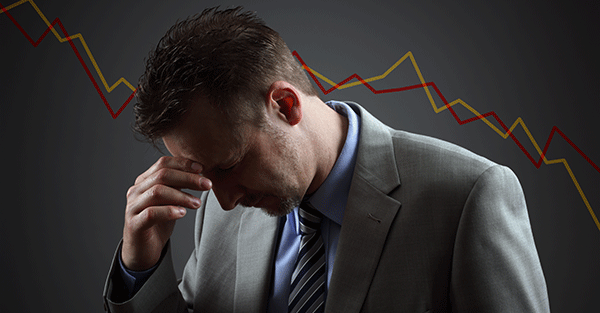I had an amazing time this weekend sharing the stage at an investment conference in Miami, with other speakers like Robert Kiyosaki, Peter Schiff, and G. Edward Griffin among others.
During a panel on the future of money and banking we discussed how the financial system is rapidly losing control of its own product, i.e. money, in the same way that the music industry has lost control of its product.
In the past there used to be a handful of large record labels that controlled the distribution of music across the world.
In the same way, our financial system was set up for a handful of banks to tightly control the distribution of money across the world to the point that no financial transaction could occur without a bank inserting itself in the middle.
But like music, this model is rapidly changing.
Just as you can have now access an unlimited catalog of albums without ever setting foot in a record store, we are now in a position to conduct financial transactions entirely outside of the banking system.
Every single function of a bank, whether to save, borrow, exchange, or transfer money, can all be done better, cheaper, and more efficiently outside of the banking system.
Rather than going to a bank with hat in hand, you can now fund your startup through an online crowd-sourcing platform.
More importantly, dollar dominance is waning.
The dollar has been the dominant reserve currency since the end of WWII.
But the US government has abused this privileged position so many times, with constant bullying of other nations and threatening to excommunicate foreign banks from the US financial system.
So now other nations are quickly coming together to create an alternative system that no longer depends on America.
Jim Rickards, author of Currency Wars, spoke about a meeting that he had with senior officials at the US Department of Treasury.
Jim had expressed concerns about the dollar losing its status, or at least significant market share, as the world’s reserve currency.
And as I kept telling the audience this weekend, this isn’t a question of “what if?” it’s a question of “what is.”
The government of Iran, for example, has already decided to be paid in euros for oil instead of dollars.
And the government of Brazil almost immediately jumped on the bandwagon to trade with Iran outside of the US financial system.
These are major blows to the dollar, and all this just happened within the last couple of weeks.
Yet as Jim Rickards continued his story, senior officials at the Treasury Department refused to acknowledge that the US dollar would ever lose its status and power in the world.
Jim said he felt like he was in London in 1913, with British bureaucrats pounding the table about how the British pound sterling rules the world.
This is a total fantasy.
As we discussed in Friday’s analysis of the US government’s latest financial reports, the government is totally bankrupt to the tune of negative $18.2 trillion.
The Federal Reserve has printed itself into insolvency.
And the entire US financial system is underpinned by the greatest level of debt that has ever existed in the history of the world.
There is no nation and no currency entitled to the top spot forever. History shows that wealth and power routinely change.
And Robert Kiyosaki added that there’s never been a change this big, nor so many people unprepared.
I tend to agree. Just looking at the sheer size of the $200 trillion debt bubble, there’s never been a change of this magnitude.
And given that more than half of Americans have less than a thousand dollars in savings, it’s clear that too many people are unprepared.
In my own remarks, I discussed all the striking similarities between 2008 (when the world erupted in a massive financial crisis), and where we are today.
Our financial system is loaded with risk. Insolvent governments, insolvent central banks, dangerous levels of illiquidity, negative interest rates, early signs of capital controls.
Again- this isn’t “what if”. It’s “what is”.
G. Edward Griffin, author of the exceptional The Creature from Jekyll Island about the Federal Reserve quoted Sun Tzu, suggesting that if you “know your enemy and know yourself you need not fear the result of a hundred battles.”
I call this having a Plan B. It means understanding what the real risks are (and what they’re not). And taking sensible steps to do something about it.
After learning about the risks and solutions, and then creating a sensible Plan B, you’ll never find yourself complaining that your new bank is too safe.
Or that it’s too hard for the government to confiscate your assets.
Or that your tax bill is too low.
Or that your retirement plan is too exciting.
These are all things that make sense no matter what happens next. Or what doesn’t.








